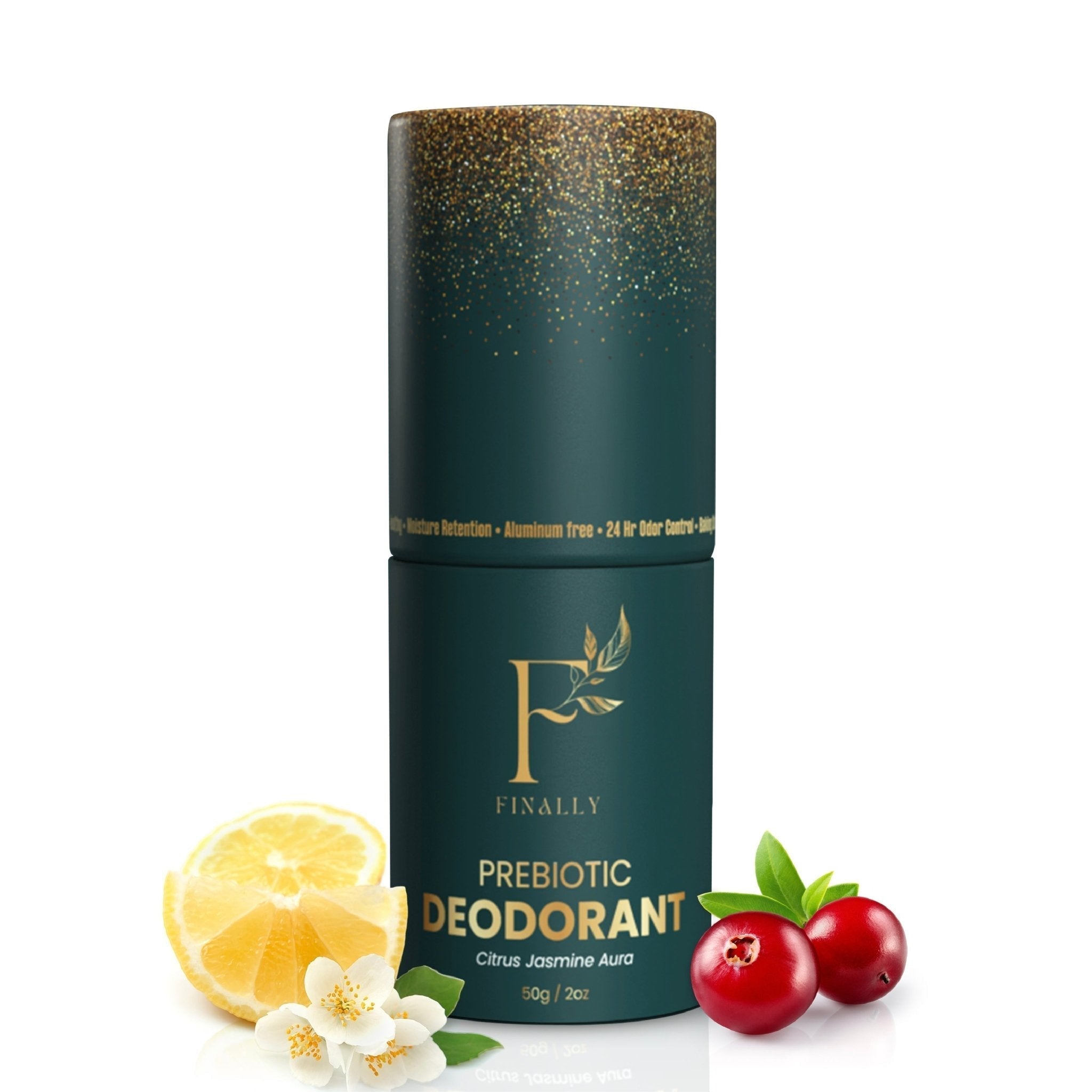Prebiotic vs Probiotic Skincare
In the growing world of microbiome skincare, many people are rethinking what they put under their arms. As consumers shift away from aluminum and synthetic formulas, terms like prebiotic and probiotic deodorant are appearing on more product labels. This guide explains what they mean, how they work, and which option may be best for your skin.
This natural deodorant comparison helps clarify the differences between prebiotic and probiotic deodorant so you can make an informed, skin-friendly choice.
Understanding the Microbiome
Your skin, including the underarms, is home to a diverse community of bacteria called the skin microbiome. This ecosystem helps protect the skin, manage inflammation, and regulate odor.
When disrupted by harsh deodorants or antiperspirants, the microbiome can become unbalanced. This imbalance may lead to irritation, dryness, or even stronger body odor. Microbiome-friendly deodorants, such as prebiotic and probiotic formulas, are designed to maintain this natural balance.
What Is Prebiotic Deodorant
Prebiotic deodorants contain ingredients that nourish the good bacteria already present on your skin. These prebiotics are often plant-based compounds such as inulin or chicory root extract. They help beneficial bacteria thrive, which in turn supports skin health and reduces odor.
How it works:
-
Feeds good bacteria to support their growth
Encourages microbiome balance -
Keeps odor-causing bacteria under control
-
Does not block sweat or disturb the skin’s natural functions
Prebiotic deodorants are a good choice for sensitive skin and for people transitioning away from traditional deodorants.
What Is Probiotic Deodorant
Probiotic deodorants contain live cultures of beneficial bacteria. The goal is to introduce helpful microbes to the skin in order to improve or rebalance the existing microbiome.
How it works:
-
Delivers live bacterial strains directly to the skin
-
Aims to improve microbial diversity
-
May reduce odor by shifting the bacterial environment
Probiotic deodorants may appeal to those who are already familiar with using probiotics in diet or skincare. However, they are typically less stable and may require more careful handling.
Key Differences Between Prebiotic and Probiotic Deodorant
Here is a clear comparison of the two types:
Prebiotic Deodorant
-
Supports the growth of your skin’s existing good bacteria
-
Very stable with a long shelf life
-
Typically gentle and well-tolerated by sensitive skin
-
Controls odor by promoting balance
-
Easy to use in natural formulations
Probiotic Deodorant
-
Introduces new live bacteria to the skin
-
Can be unstable or less effective if not stored properly
-
May not suit all skin types
-
May help reduce odor by changing skin’s microflora
-
Harder to preserve naturally
Which One Should You Choose
Prebiotic deodorants are often better suited for everyday use. They are stable, gentle, and effective at supporting the skin’s natural ecosystem. This makes them a smart choice for people with sensitive skin or those looking for a reliable, microbiome-safe deodorant.
Probiotic deodorants can offer benefits for some users, but their live cultures may make them less consistent. They are more complex to formulate and store and may not be as well tolerated by reactive skin types.
Recommended Product: Finally All Natural’s 100 Percent Natural Deodorant
For a safe and effective prebiotic option, we recommend Finally All Natural’s 100 Percent Natural Deodorant. This aluminum-free and baking soda–free deodorant is designed to work with your body’s microbiome, not against it.
Key benefits include:
-
Contains prebiotics that help support healthy skin bacteria
-
Infused with blue agave to help maintain a balanced microbiome
-
Lightly scented with real cold-pressed jasmine and lemon
-
Long-lasting and non-irritating, ideal for sensitive skin
-
Leaves no white residue and absorbs cleanly
This deodorant offers a thoughtful solution for those looking to stay fresh while supporting overall skin health.
Choose which works best for you
Both prebiotic and probiotic deodorants are designed to protect and support your skin's microbiome, but they do so in different ways. Prebiotic deodorants feed the good bacteria you already have, while probiotic formulas attempt to introduce new ones. For most users, especially those seeking stability and gentle care, prebiotic deodorants offer a practical and effective solution.
Choosing a microbiome-friendly deodorant like Finally All Natural's 100 Percent Natural Deodorant can help you stay fresh, balanced, and confident while taking better care of your skin.




